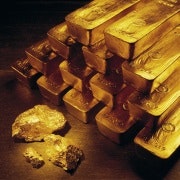ASHES: What happened to Australian batsmen?
Durham Test — Australian Test cricket is not a young man’s game. This is not for want of trying. On the morning after Australia lamely surrendered in Durham, Darren Lehmann, the coach, observed: “Everyone says rebuild, rebuild, rebuild, but you need guys in first-class cricket making runs to take someone’s slot.” Trouble is that the raw materials look as if they can’t take the strain, especially among the batsmen.
The team has not begun to recover from the loss of Mike Hussey and Ricky Ponting. When they quit, a number of young batsmen were named as potential successors. None has inspired confidence in the England summer. Look at the record of the middle order batsmen.
Phil Hughes has scored 83 runs in four innings (81 of them in the first innings at Trent Bridge), and averages 32.65 in 26 Tests.
Usman Khawaja has scored 113 runs in six innings this summer. In nine Tests, he averages 25.13.
Ed Cowan played only in Trent Bridge, where he was unwell, but scores of 0 and 14 in his 18th Test reduced his average to 31.28.
Steve Smith has appeared in all four Tests, batting eight times for 197 runs, which brings down his average to 29.52 in 11 Tests.
The only player from this generation who has established his place is David Warner, when he behaves himself. He averages 38.41 in 21 Tests.
This is evidence of an acute generation problem. New faces were rare in the great teams led by Steve Waugh and Ricky Ponting, but, if they had been required, the selectors could have chosen from a group of batsmen of real class. Remember Matthew Elliott, Stuart Law, Michael Bevan and Phil Jaques? Between them, they played in only 42 Tests. Mike Hussey had to wait until he was 30 to win a place (averaging 51.22 in 75 Tests thereafter). The only survivor of that talented generation is Chris Rogers, who won a permanent place only this summer.
Darren Lehmann said yesterday that only Rogers and Michael Clarke were sure of their place in the fifth Test at The Oval, beginning on 21 August. This stance is being a bit hard on Warner, surely. But Lehmann made it clear that careers are on the line: “We’ve got to find blokes who will learn. If they don’t learn, we’ll find blokes that will.”
One problem is that some of those blokes would rather be earning big bucks in the IPL and the Big Bash than forging a career in four-day Shield cricket. The IPL makes remarkably generous contribution to their bank balances, but it does not develop the kind of mental strength that England exhibited when they took Australia’s last nine wickets in one session of the fourth day of this Test.
It may be no coincidence that very few English players are to be found in the IPL. Kevin Pietersen is a valuable commodity, but his contract with the English Cricket Board insists that he return to play Tests even if they conflict with the end of the IPL season. He does not like it, but concludes that his reputation depends on his performances in Tests. England is a cohesive outfit now and they expect to win, even when their top order batsmen are performing no better than the Australians.
Consistency had been provided by Ian Bell, often partnered by Pietersen. When he was coached by Australia’s national selector John Inverarity at Warwickshire, Bell was a frustrated batsman, selected for the Ashes in 2005 but rarely at his best in games against Big Beasts like Warne and McGrath. Inverarity claimed this was the consequence of an endemic weakness that Bell seemed incapable of correcting. He declined to say just what it was. Whatever it was, three hundreds in four Tests suggest that Bell has identified it and eradicated it. Without his elegance in attack and security in defence, Australia could conceivably have won a couple of the four Tests.
Lehmann also let it be known yesterday that Ryan Harris might be rested at The Oval. His bones are a lot older than his 33 years and, having established himself as the leader of the bowling group, it is not worth the risking in a meaningless match. The bowlers, who have performed manfully, are not part of the problem; Mitchell Starc would be an adequate replacement for Harris.
The spinner Nathan Lyon has won the respect of the English batsmen; the selection of Ashton Agar in his place in the first two Tests now seems eccentric. Agar’s 98 in his debut Test innings was one of the most satisfying dramatic episodes of the summer, but he has still to learn to bowl.
As for the English, they too have begun to look forward to the Ashes Part Two, starting in November. Coach Andy Flower admits that England have not played their best cricket this summer, and that the Australian series will be a bigger challenge. Hope so.
Stephen Fay is a former editor of Wisden and author of books about the Bank of England and the collapse of Barings.
















